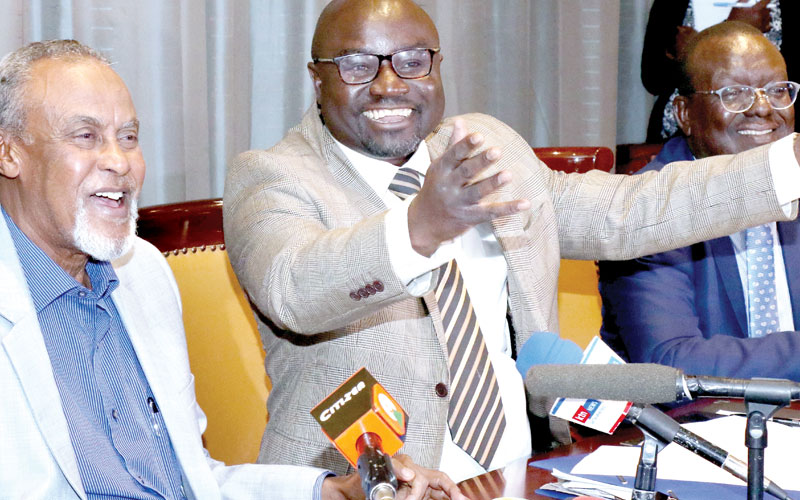Parliament drafts bill to govern referenda as BBI report beckons
By Mercy Mwai, November 4, 2019The National Assembly has a crafted a law to govern how the country will be conducting referendums.
Should it sail through the House, the Referendum Bill 2019, which is currently before the Constitutional Implementation and Oversight Committee, will establish a legal framework for the regulation of a referendum.
The development comes in the walk of heightened referendum talk ahead of the release of the Building Bridges Initiative (BBI) report. The BBI is expected to recommend far reaching changes to the Constitution.
The bill sponsored by Ndaragwa MP and CIOC chairperson Jeremiah Kioni also seeks to provide the mechanism for redress as well as amendments, including deletion of 22 sections of the Elections Act which currently provide for the conduct of referenda.
“The bill provides for the process to be followed at the initiation of the referendum, the timelines for the verification of signatures as well as the threshold and timelines which the County Assemblies must consider a popular initiative,” the bill reads in part.
Popular initiative
Through the legislation, the MPs are also proposing how to initiate a referendum, how referendum petitions will be handled and the grounds and procedures to be followed in the institution of referendum petitions in the High Court.
The Constitution can either be amended through a parliamentary system or through a referendum.
With respect to the popular initiative, the initiative is supposed to be supported by at least one million registered voters subject to verification by the Independent Electoral and Boundaries Commission. Once the signatures are verified, the proposal is then taken to County Assemblies for approval.
Once MCAs approve the bill, it is then taken to Parliament for approval or rejection and later to the President for assent.
The Punguza Mizigo Bill sponsored by the Ekuru Aukot-led Thirdway Alliance was pegged on the above process and was defeated after it failed to garner support of 24 counties as required by law.
The BBI taskforce is expected to present its report to President Uhuru Kenyatta and former Prime Minister Raila Odinga. Speculation is rife on the BBI recommendations, with Kenyans gearing for a referendum. The report is expected to recommend a referendum to change the governance system.
Referendum question
It is against this reality that the MPs crafted the bill.
With respect to the initiation of a referendum, the bill provides that once the commission receives a bill, it will frame a question to be detained within seven days and thereafter assign symbols for each question which shall not resemble that of a political party or an independent party.
Thereafter, the commission shall, within 14 days after publication of a question, publish a notice of the holding of a referendum in the gazette notice specifying the question to be voted on; the symbol assigned to an answer to a question; the day the referendum will be held; the poling time of the referendum; the day which referendum committees will have registered with the commission and the day and time by which campaign in support or in opposition of the referendum shall start and end.
The bill provides that a referendum committee will bears its own costs during the campaign period, including payment of referendum committees’ agents.
20pc voters
In case of voting, an amendment to the Constitution shall be approved by a referendum if at least 20 per cent of the registered voters —and half of the counties—vote in the referendum and the amendment is supported by a simple majority of the citizens voting in the referendum.
In case of referendum petitions, the proposed bill provides that the procedure applicable to an election petition shall apply to a referendum petition. The grounds for a petition include alleged corrupt practices in relation to the voting at the referendum as well as errors n the counting and tallying of the votes casts.
Where a referendum petition is not presented to the High Court within the required time, the declared result of the referendum shall have effect from the date on which result is declared, be final.
“A referendum petition shall be heard and determined by a bench of three judges appointed by the Chief Justice,” reads the bill in part.
“A referendum petition shall be heard and determined within six months from the date of presentationand will be heard in an open court.”
All cots charges, and expenses of and incidental to the presentation and hearing of a petition shall be done in such a manner that the High Court will prescribe.
